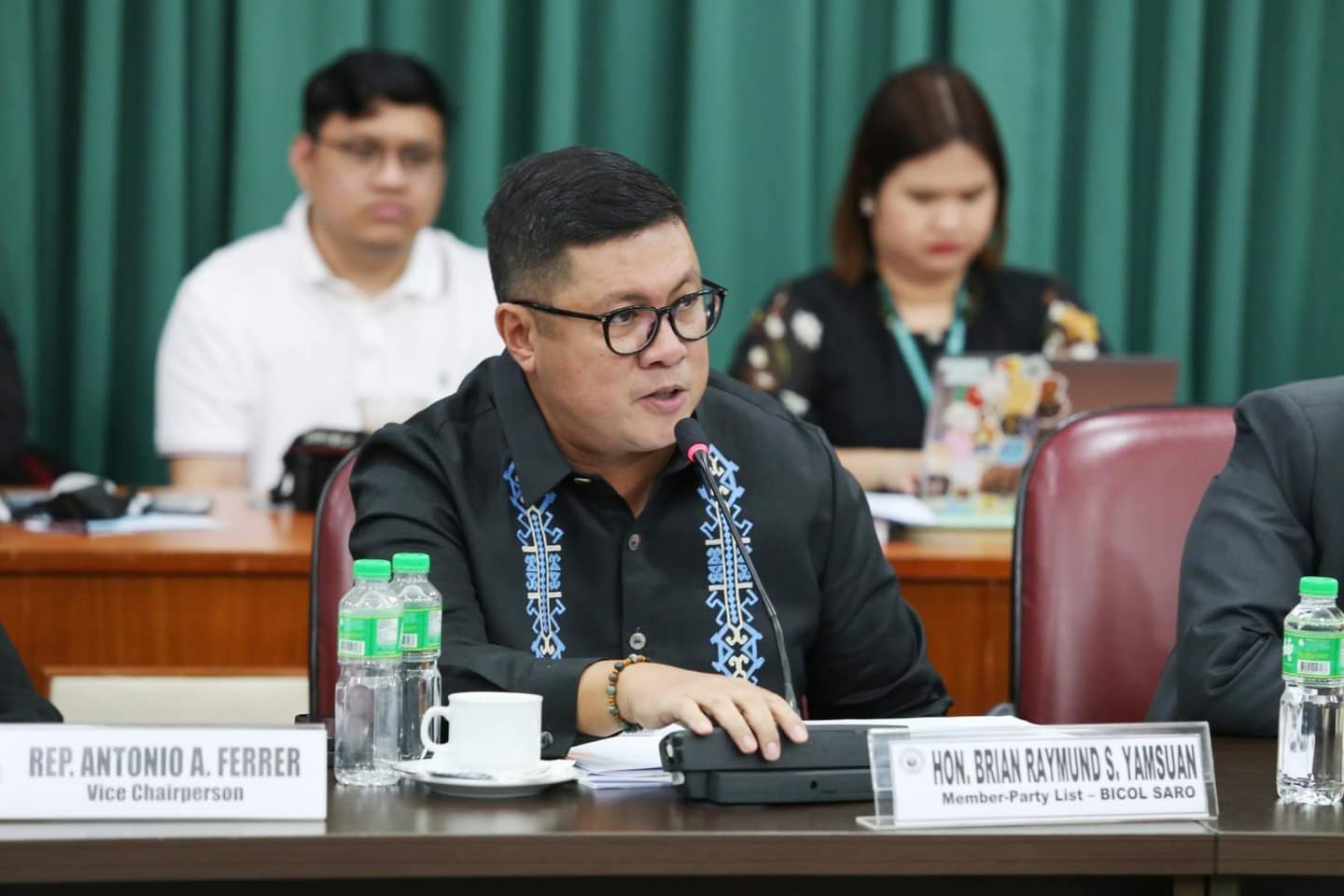Gov't should tap Japan as funding source for Bicol Express revival, says Yamsuan
At A Glance
- Bicol Saro Party-list Rep. Brian Raymund Yamsuan says the government should consider Japan as a viable funding option to finance the long-derailed Bicol Express rail line.
 Bicol Saro Party-list Rep. Brian Raymund Yamsuan (Rep. Yamsuan's Facebook)
Bicol Saro Party-list Rep. Brian Raymund Yamsuan (Rep. Yamsuan's Facebook)
Bicol Saro Party-list Rep. Brian Raymund Yamsuan says the government should consider Japan as a viable funding option to finance the long-derailed Bicol Express rail line.
In a statement on Sunday, April 7, Yamsuan said the Japan International Cooperation Agency (JICA)---which implements Japan’s official development aid—offers highly concessional financing packages to the Philippines for its infrastructure projects.
“JICA’s concessional loan terms for the Philippines remain competitive enough for the Department of Transportation (DOTr) to consider Japan as a viable funding option for the revival of the Bicol Express rail line,” he said.
Citing a recent statement from the Department of Finance (DOF), the lawmaker noted that the third tranche of the loan for the proposed Metro Manila Subway funded by the JICA carries a low-interest rate.
Specifically, the annual interest rate for non-consulting services is 0.3 percent and 0.2 percent for consulting services.
This agreement has a lengthy 40-year repayment period.
Several investment analysts and economists have recommended turning to Japan for the big-ticket railway projects that were delayed after loan negotiations with China fell through.
According to the DOTr, the Bicol Express or the South Long Haul Railway Project, the Subic-Clark Railway Project, and the Mindanao Railway Project were initially slated to be funded and developed by China.
Yamsuan said portions of the proposed South Long Haul project could be funded by Japan, with other parts funded through the Public-Private Partnership (PPP) mode.
The first phase of the long-delayed project is estimated to cost about P142 billion.
Yamsuan said the Bicol Express revival “will serve not only as an economic driver, but as a powerful engine that would bridge communities and realize dreams, while safeguarding the heritage of the Bicolanos".
He noted that this would provide commuters with affordable and safe mode of transport going to and from Bicol, accelerate economic growth and create more jobs and livelihood opportunities, boost tourism, and reduce the country’s carbon footprint.